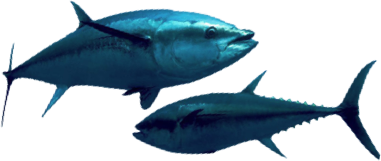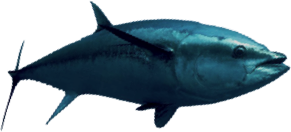The CCSBT has two types of Membership plus a Cooperating status for Non-Members:
- Membership of the Commission
- Membership of the Extended Commission
- Cooperating Non-Member of the Extended Commission
It is important to note that the CCSBT’s record of authorised fishing vessels is only open to Members and Cooperating Non-Members of the CCSBT and that fishing vessels not on the record are deemed not to be authorised to fish for, retain on board, tranship, or land southern bluefin tuna (SBT) regardless of the size of those vessels. In addition, Members and Cooperating Non-Members will not validate CDS documents for vessels that are not on record of authorised vessels and shall not accept imports or domestic landings of SBT product from vessels that are not on these lists.
Membership of the Commission
Membership of the Commission is open to any State, whose vessels engage in fishing for southern bluefin tuna, or any other coastal State through whose exclusive economic or fishery zone southern bluefin tuna migrates.
A State may become a Member of the Commission by depositing its instrument of accession to the Convention for the Conservation of Southern Bluefin Tuna with the Depository of the Convention, which is Australia. Membership of the Commission becomes effective for a State on the date of deposit of that State’s instrument of accession. The instrument of accession should be addressed to the Treaties Secretariat of the Australian Department of Foreign Affairs and Trade.
| Hard copies should be sent to: | RG Casey Building |
| John McEwen Crescent | |
| Barton ACT 0221 | |
| Australia | |
| Electronic copies should be sent to: | treaties@dfat.gov.au |
Members of the Commission are also automatically Members of the Extended Commission.
Membership of the Extended Commission
Any regional economic integration organisation, entity or fishing entity, vessels flagged to which1 have caught SBT at any time in the previous three calendar years, may express its willingness to the Executive Secretary to become a Member of the Extended Commission.
The procedures for becoming a Member of the Extended Commission are provided in the CCSBT’s Resolution to Establish an Extended Commission and an Extended Scientific Committee.
The Extended Commission reports to the Commission and decisions of the Extended Commission become decisions of the Commission, unless the Commission decides to the contrary. Most of the business of the CCSBT is conducted by the Extended Commission and any decision of the Commission that affects the operation of the Extended Commission or the rights, obligations or status of any individual Member within the Extended Commission should not be taken without prior due deliberation of that issue by the Extended Commission.
Members of the Extended Commission have the same obligations as Members of the Commission, including compliance with the decisions of the CCSBT and the provision of financial contributions to the CCSBT.
1Including vessels flagged to a State that is a Member of the regional economic integration organisation.
Cooperating Non-Member of the Extended Commission
The Executive Secretary has standing instructions to invite all States and entities whose fishing vessels harvest SBT or through whose exclusive economic or fishery zone SBT migrates to co-operate with the Commission by acceding to the Convention or, as the case requires, by becoming a member of the Extended Commission or applying to the Extended Commission for the status of a Cooperating Non-Member (CNM). Any State or entity that receives such an invitation may apply to the Extended Commission to be admitted in the capacity of a CNM to the Extended Commission.
The procedures for becoming a CNM of the CCSBT are provided in the CCSBT’s Resolution to Establish the Status of Cooperating Non-Member of the Extended Commission and the Extended Scientific Committee.
Applications for CNM status should be received by the Executive Secretary at least 120 days before the Annual Meeting of the Extended Commission.
CNMs have the right to participate actively in meetings of the Extended Commission, the Extended Scientific Committee and their subsidiary bodies, including, but not limited to, the right to make proposals and the right to speak, but not to vote. The Extended Commission may decide to restrict the participation of a CNM in a particular agenda item. CNMs must comply with the decisions of the CCSBT, but they are not required to provide financial contributions to the CCSBT.
At each Annual Meeting, the Extended Commission determines whether individual CNMs qualify to retain the status of CNM. The Extended Commission will evaluate the performance of the CNM against the commitments set out in its Exchange of Letters with the Extended Commission.

